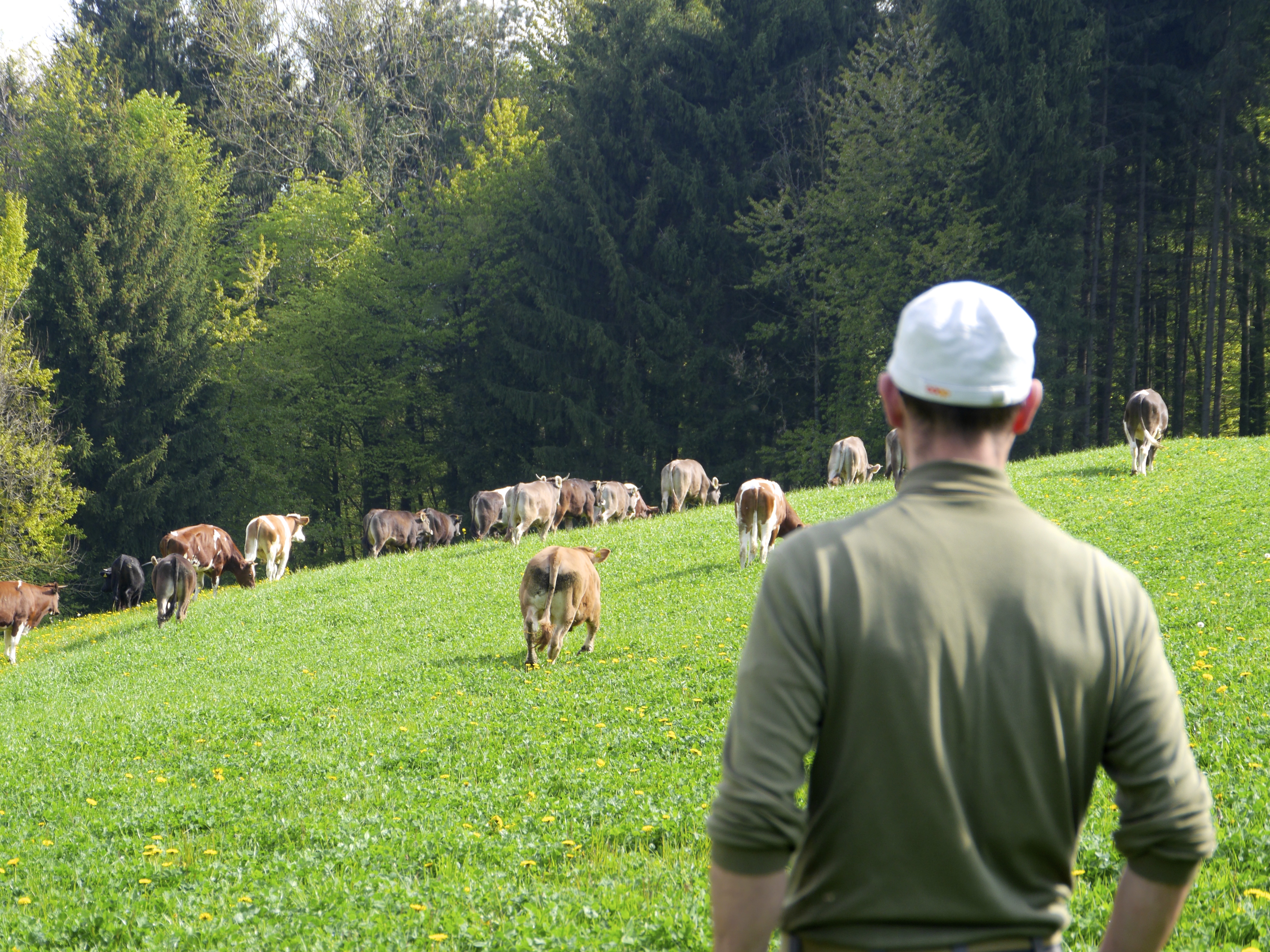Between high workload and high satisfaction: The wellbeing of farmers running a mixed farm
Within the Mix-Enable project we interviewed farmers running mixed organic livestock farms to assess their individual satisfaction and wellbeing. Despite the high workload, the overwhelming majority of farmers rated their satisfaction at work as high or often high.



For a long time, farmers are recommended to grow, specialise and intensify to modernise and increase efficiency. While this specialisation strategy allows farmers to run their farm efficiently and to acquire in-depth individual knowledge about the selected production system, it might also be connected to repetitive work, routines and new dependencies.
In the CoreOrganic Project “Mix-Enable”, we were interested in farmers following an alternative strategy based in a high diversity. More specifically, we looked at organic farmers, which integrate husbandry of two or more animal species into their farming system. We assumed, that by running such a diversified system, the farmer benefits from positive effects, such as more efficient use of pasture land, closed nutrient cycles, improved parasite management, robustness against climate change or market fluctuations.
Running an organic mixed livestock farm requires specific knowledge on the respective animal species. Moreover, the complexity of the system might lead to a high diversity of complex tasks and an increased physical workload. To add to the understanding of the overall sustainability of the organic mixed livestock farming system, we explored the wellbeing and satisfaction of the interviewed farmers.
In Mix-Enable, we collected data from more than 120 farms based in seven European countries. The questionnaire used in face-to-face interviews covered the ecological, economic and social dimension of sustainability. For the social dimension, we asked farmers to rate, e.g. their perceived satisfaction at work, the workload and the connected mental complexity or physical difficulty. Farmers were also asked to justify their rating and explain the strengths and weaknesses of their farm.
The first analysis carried out revealed that more than 90 percent of all farmers interviewed rated their satisfaction at work as “satisfied” or “very satisfied”. Looking at the individual justification farmers gave after their rating of the satisfaction at work, we found, that farmers running a mixed organic livestock farm enjoy what they are doing. The interviewed farmers explained their high satisfaction with the permanent learning process, the diversity of tasks, the perceived autonomy and the social network, they are embedded in. These social relations are different, e.g. some farmers referred to their family, a partner, others to their customers, helping friend or neighbours. And for the organic mixed organic livestock farmers, the relation and work with animals is important.
However, the farmers rated their workload as “rather high” or “very high”. Asked about strategies to cope with the high workload farmers mention long working days, developing good planning skills, but also the possibility to organise support by involving family members, friends, neighbours or their customers.
Some farmers mention that they implement and live their vision of good farming. Many are proud to have developed a successful farming system even under difficult environmental conditions.
However, running a mixed organic livestock farm is no safe ticket to wellbeing. We assume that only highly skilled farmers or groups of farmers with complementary skills are able to run such a complex production system. A number of environmental conditions are relevant too, e.g. the ease of access for customers. To run a mixed organic livestock farm can be overwhelming for farm managers who don’t have the skills needed or access to a network of support.
So far, our study has focussed on the qualitative data collected in Mix-Enable. The further analyses will incorporate the quantitative data and allows us to test the outcome of this first qualitative approach. In addition, we aim to identify further factors relevant to the wellbeing of farmers running a complex farming system and identify trade-offs between the different dimensions of sustainability.
Author
Bernadette Oehen, Research Institute of organic farming, bernadette.oehen@fibl.org, www.fibl.org
Editor: Karin Ullven / Design: Christine Dilling
